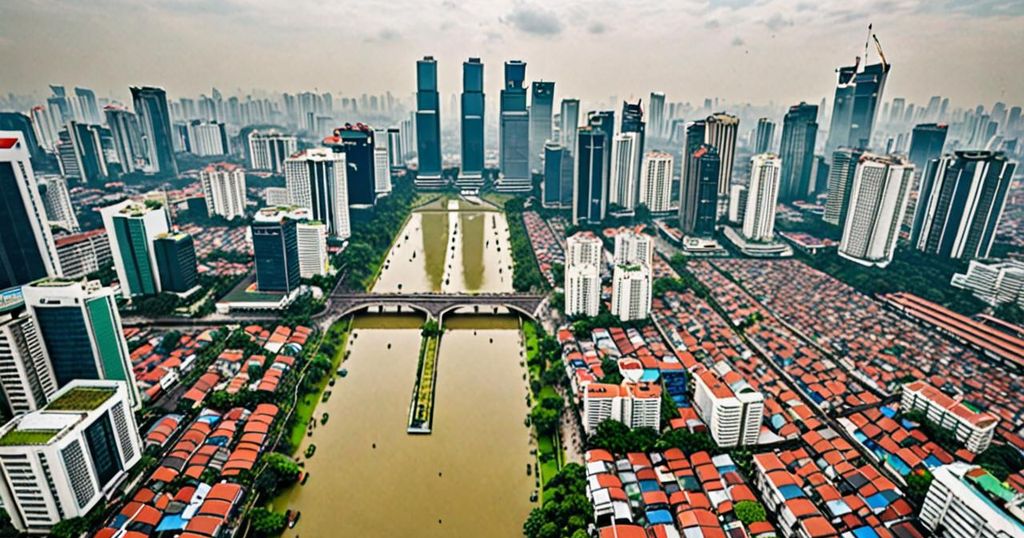The citizens of Jakarta are undertaking a new endeavor to collectively reduce carbon emissions in the city and strive to achieve a net-zero emissions target by 2050. This initiative entails significant changes in transportation, spatial planning, and collaborative engagement from all sectors of society.
The urgency of this mission has been underscored by the escalating frequency of extreme weather events and floods in the region, leading to the recognition of climate change as a tangible threat. According to Leonard Simanjuntak, the country director of Greenpeace in Indonesia, unprecedented climate and hydrometeorological disasters have resulted in substantial financial losses and casualties, underscoring the need for immediate action.
The primary driver of these environmental disasters is the exponential surge in carbon dioxide emissions over the years. Indonesia reportedly produced approximately 619.28 million tonnes of CO2 in 2021, with Jakarta making a substantial contribution. In response to this alarming statistic, the city has set a goal to achieve net-zero emissions by 2050.
The journey towards achieving net-zero emissions encompasses a range of strategies, including a transformation of the transportation sector. This entails prioritizing pedestrians and cyclists, investing in public transportation, and advocating for environmentally-friendly vehicles. Notably, Jakarta has made substantial strides in its public transportation system with the introduction of new modes of transportation such as Mikrotrans, integrated fare payment, and park-and-ride facilities. Plans are also underway to upgrade the TransJakarta fleet with electric buses.
In addition to transportation, the city’s spatial plans are being reassessed to establish a compact urban environment, facilitating convenient access to essential public facilities within walking or biking distance.
Addressing apprehensions about the effectiveness of bike lanes and potential traffic congestion resulting from the shift to electric vehicles, the government maintains confidence in the success of these initiatives. The push-and-pull strategy aims to encourage public transportation usage through logical persuasion. Higher parking fees and electronic road pricing are also being considered as measures to manage congestion in the city.
Moreover, collaborative endeavors involving the entire community are pivotal for the attainment of the net-zero emissions objective. Organizations such as the B2W community and Gerkatin are actively promoting alternative transportation methods and fostering participation in carbon emission reduction efforts.
Ultimately, the ambitious aspiration of attaining net-zero emissions in Jakarta demands a unified and comprehensive approach. It is a collective endeavor that necessitates the commitment and collaboration of all stakeholders. Only through such concerted action can the city aspire to secure a sustainable and environmentally-friendly future for future generations.

Leave a Reply